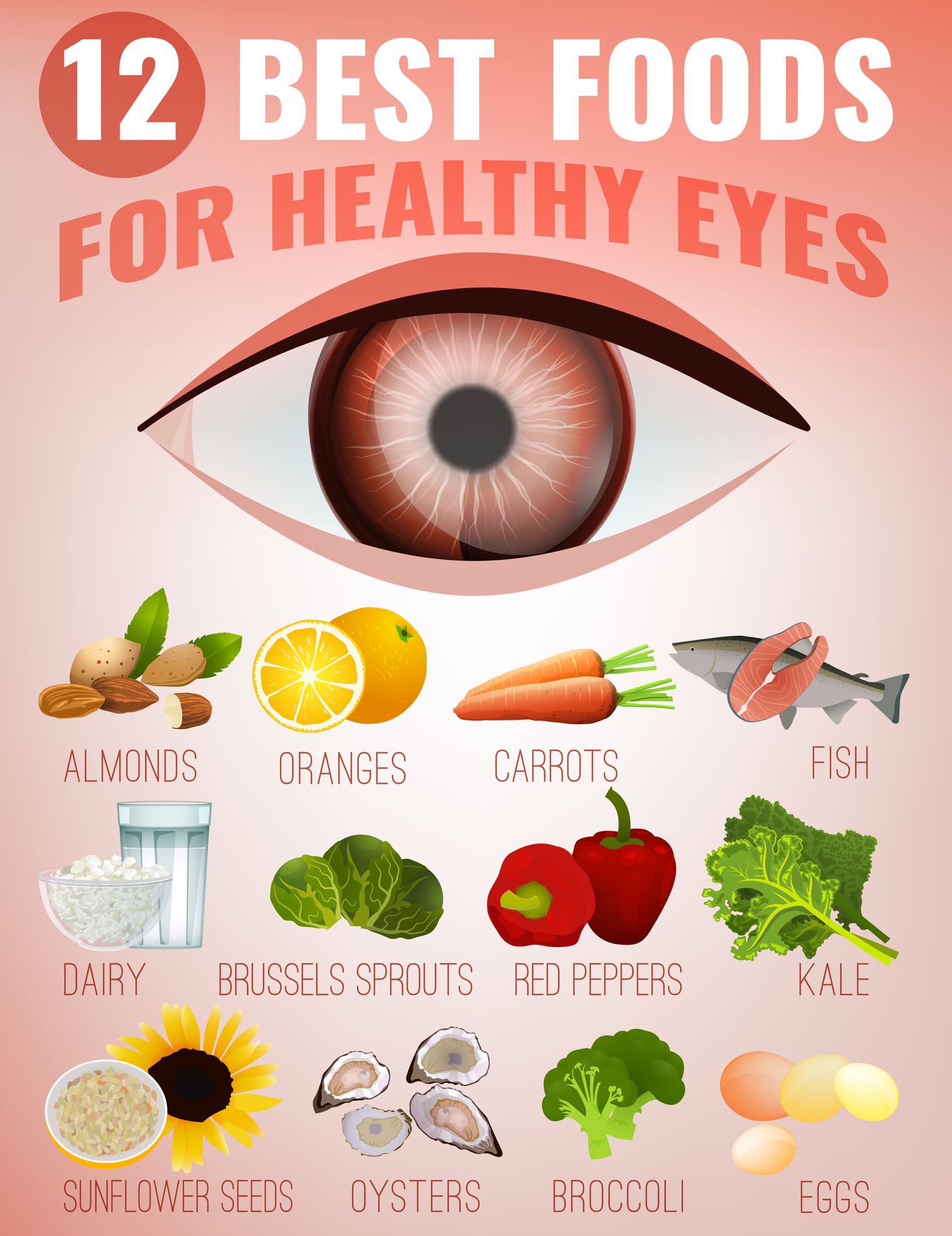Eye-Friendly Nutrients: Zinc and Selenium
Introduction
In the quest for maintaining optimal eye health, the role of nutrition cannot be overstated. Among the myriad of essential nutrients, zinc and selenium stand out for their profound impact on eye function and health. This article explores the importance of these micronutrients, their sources, recommended intake, and their specific benefits for ocular well-being.
Understanding Zinc
Zinc is a vital mineral involved in numerous physiological processes, including immune function, wound healing, and vision. In the context of eye health, zinc plays a pivotal role in maintaining the structural integrity of ocular tissues, particularly the retina and macula. Furthermore, zinc contributes to the activation of enzymes crucial for antioxidant defense mechanisms within the eye, protecting against oxidative stress-induced damage.
Sources of Zinc
Zinc-rich foods include:
- Shellfish: Oysters, crab, and shrimp.
- Meat: Beef, pork, and lamb.
- Poultry: Chicken and turkey.
- Dairy: Milk, cheese, and yogurt.
- Nuts and Seeds: Pumpkin seeds, cashews, and almonds.
- Legumes: Chickpeas, lentils, and beans.
Recommended Intake
The Recommended Dietary Allowance (RDA) for zinc varies depending on age, gender, and life stage. For adults, the RDA for zinc ranges from 8 to 11 milligrams per day for males and 8 to 9 milligrams per day for females.
Benefits for Eye Health
Zinc offers several benefits for eye health, including:
- Macular Degeneration Prevention: Zinc, in combination with other antioxidants, may help reduce the risk of age-related macular degeneration (AMD), a leading cause of vision loss.
- Visual Acuity: Adequate zinc intake supports optimal visual acuity, contributing to sharper vision and improved low-light vision.
- Wound Healing: Zinc promotes efficient wound healing, crucial for the repair of ocular tissues in case of injury or surgery.
Understanding Selenium
Selenium is a trace mineral with potent antioxidant properties, essential for maintaining overall health and well-being. In the context of eye health, selenium’s antioxidant capabilities play a crucial role in protecting ocular tissues from oxidative damage caused by free radicals.
Sources of Selenium
Selenium-rich foods include:
- Seafood: Tuna, salmon, and sardines.
- Brazil Nuts: Particularly high in selenium.
- Poultry: Chicken and turkey.
- Eggs: Especially the yolks.
- Whole Grains: Brown rice, barley, and oats.
- Sunflower Seeds: A good source of selenium.
Recommended Intake
The Recommended Dietary Allowance (RDA) for selenium is typically around 55 micrograms per day for adults.
Benefits for Eye Health
Selenium offers several benefits for eye health, including:
- Antioxidant Protection: Selenium neutralizes harmful free radicals, reducing oxidative stress and inflammation in the eyes.
- Glaucoma Prevention: Selenium’s antioxidant properties may help lower the risk of developing glaucoma by protecting against optic nerve damage.
- Cataract Prevention: Adequate selenium intake may reduce the risk of cataract formation by combating oxidative damage to the lens.
Conclusion
Incorporating zinc and selenium-rich foods into your diet is a proactive step towards maintaining optimal eye health. These micronutrients play vital roles in protecting against age-related eye diseases, preserving visual acuity, and supporting overall ocular well-being. By prioritizing a balanced diet rich in eye-friendly nutrients, you can safeguard your vision and enjoy a lifetime of clear sight.
Summary
This article explores the importance of two essential nutrients, zinc and selenium, for maintaining optimal eye health. It discusses their sources, recommended intake, and specific benefits for ocular well-being. By incorporating zinc and selenium-rich foods into your diet, you can protect against age-related eye diseases and preserve visual acuity for a lifetime of clear sight.
World Eye Care Foundation’s eyecare.live brings you the latest information from various industry sources and experts in eye health and vision care. Please consult with your eye care provider for more general information and specific eye conditions. We do not provide any medical advice, suggestions or recommendations in any health conditions.
Commonly Asked Questions
Both zinc and selenium are essential micronutrients with antioxidant properties that protect ocular tissues from oxidative damage, helping to prevent eye diseases like macular degeneration and glaucoma.
Zinc-rich foods include shellfish, meat, poultry, dairy, nuts, seeds, and legumes.
The Recommended Dietary Allowance (RDA) for zinc varies, but for adults, it typically ranges from 8 to 11 milligrams per day for males and 8 to 9 milligrams per day for females.
Selenium acts as a powerful antioxidant, protecting against oxidative stress and inflammation in the eyes. It may help lower the risk of glaucoma and cataracts.
Selenium-rich foods include seafood, Brazil nuts, poultry, eggs, whole grains, and sunflower seeds.
The Recommended Dietary Allowance (RDA) for selenium is around 55 micrograms per day for adults.
Yes, both nutrients, especially when consumed as part of a balanced diet rich in antioxidants, may help reduce the risk of age-related macular degeneration.
Excessive intake of zinc can lead to gastrointestinal upset and interfere with copper absorption, while selenium toxicity can cause hair loss, nausea, and neurological issues.
While supplements can be beneficial for those with deficiencies, it’s generally best to obtain nutrients from whole foods to ensure a balanced intake.
Consistent intake of zinc and selenium-rich foods as part of a healthy diet can contribute to long-term eye health, with noticeable benefits over time.
news via inbox
Subscribe here to get latest updates !








